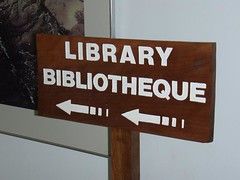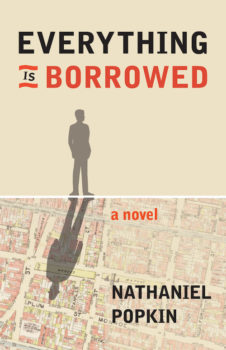
As a nation of readers in a changing media climate, we haven’t yet come to a consensus on what forces should govern the digital availability of information. The controversial and ambitious Google Book Search, in its original form, brought the objections of authors and librarians; acts of resistance to static copyright laws, such as Aaron Swartz’s download and release of millions of JSTOR articles, are met with serious sentences (Swartz hanged himself after the court ruling that would have sentenced him to 35 years in prison and fined him $1 million). But according to Robert Darnton, who’s championed the idea of a digital public library for all since at least 2010, today’s launch of the Digital Public Library of America will symbolize the marriage of two American approaches to information access, pragmatism and utopianism. (Read his New York Review of Books introduction to the site here, as well as his analysis of Google Book Search’s initial failures).
How exactly will the DPLA differ from Google’s database, or from the Library of Congress? For one thing, it will be free—Google’s proposition, rejected in court, was for libraries to pay for subscriptions to the digital versions of books that, in many cases, they had provided to be scanned. It will also be available to anyone with an Internet connection, regardless of institutional affiliation or lack thereof. Utopian. And searchable.
It also wants to make information available more quickly and transparently than our bureaucrats could. “We believed [the DPLA] required private initiative and that it would never get off the ground if we waited for the government to act,” Darnton writes. Pragmatic, indeed.
Privately-run print libraries have, of course, existed forever, and continue to exist today, often as nonprofits (take, for example, Poets House in Manhattan). But what does it mean for a digital “public” library of this scale to be managed privately, and outside of the jurisdiction of a university? Luckily, the committee that worked to make the DPLA a reality is nothing if not civic-minded—they think of their venture as a private-for-public offering. Executive Director Dan Cohen, formerly of the Roy Rosenzweig Center for History and New Media at George Mason University, says:
We need a public option to balance out the gated resources that universities license at great expense and that increasingly eat up scarce library resources. I see the DPLA as a large open storehouse for classroom use and scholarly investigation, for inclusion in syllabi, articles, and books, and as a bridge between academia and the general public.
(Unsurprisingly, the title of Cohen’s recent book is Hacking the Academy.)
It’s for lack of that open-source philosophy, perhaps, that Google Book Search failed and Lawrence Lessig continues to shake his fist. A more democratic vision of digital information access—a return, some would say, to the philosophy of the early Internet—is certainly welcome. Open access just makes sense, Darnton and Cohen say, especially for academic publications—journal subscription prices have risen so high that a scholar’s work in an open-access journal is more likely to be read. But there are still questions about whether a large digital library would diminish support for local, brick-and-mortar public libraries. Is the DPLA potentially a case, like many cities’ reliance on charter schools, of a private project for the public good that risks leaving the original public institutions in disrepair?
Cohen doesn’t think so. He’d rather the DPLA be a “partner” to public institutions than a “replacement,” and wants to make that clear as the project launches. The DPLA can aid smaller libraries or libraries strapped for funds by supplementing their collections digitally, and for free; and libraries that partner with the DPLA can provide unique documents and titles in their collections to exponentially more patrons. So far, the institutions on board range from the Smithsonian to ARTstor to existing local and state digital libraries, many of which are already the fruits of public-private collaborations.
I can hear the members of the Authors’ Guild digging their fingernails into their kitchen tables, so let me also settle how the DPLA will affect authors. At first, it will operate much as a Print-on-Demand machine would—providing access to public-domain materials, then incorporating out-of-print books that are still under copyright. Eventually, the website says, it will “explore models for digital lending of in-copyright materials.” That may sound hairy, but it isn’t new; even your local library may have a version of digital lending, in which an e-book “times out” after you’ve had it for a certain period of time.
It’ll be a while before you can use the DPLA to access your favorite Alice Munro from an Internet café in Zambia. So what will the newly launched library contain in its first months? Among other things, sponsoring institution Harvard will provide “243 rare medieval manuscripts and 3,628 daguerreotypes, including the first photographs of the Moon.” The Founders, I dare say, would be proud.





